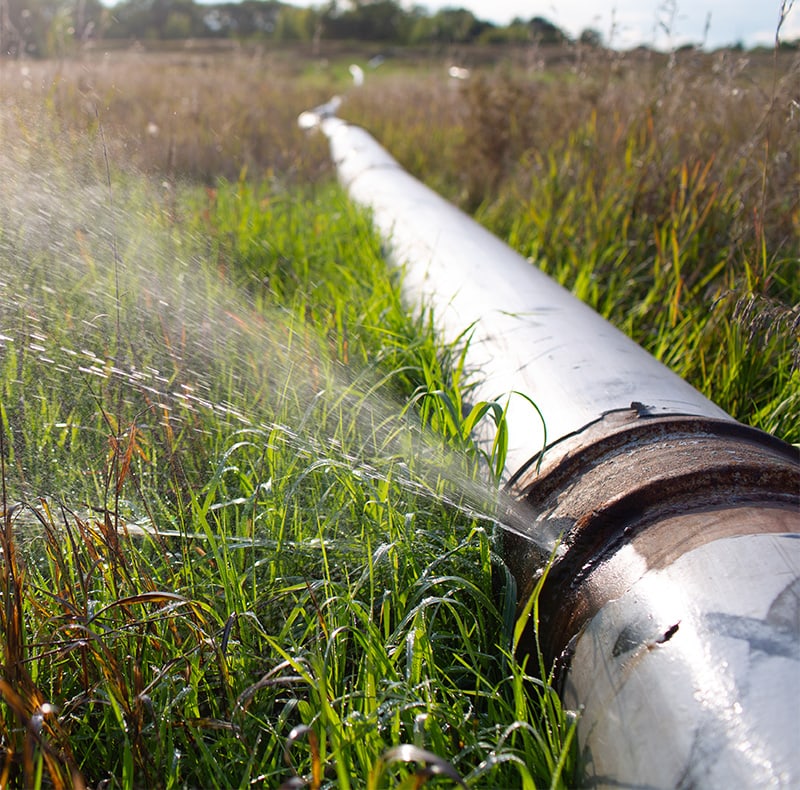Did you have a water damage or are you worried that there is a risk of water damage in your private house?
House Security will film the condition of the pipes in your private house with a sewer camera completely free of charge, without any commitment on your part. So don’t guess or live in stress, we will make sure.
Taloturva is a pioneer in plumbing renovations for detached houses and has already carried out more than 7,000 sewer renovations in Finland and Sweden.
We prevent water damage in time. Book your free drain survey now here or contact us and we’ll answer your fears!
Prevent your risk of water damage before it happens.

Water damage can be expensive and easily preventable in a private house
Along with fire, water damage is one of the biggest nightmares for many homeowners and certainly for renters. The most common causes of acute water damage are, above all, a broken washing machine or dishwasher, a burst pipe or pipe connection, and a shower or tap left on, combined with a badly draining drain. Water damage can also occur gradually, for example due to poor construction.
As water damage can cost a home tens of thousands of euros in repair costs, it is important to be able to anticipate, identify and deal with water damage before irreparable damage occurs. In this article, we share useful information about water damage and the risks involved. Finally, we will share a few tips to help each of us learn how to prevent the risk of water damage on our own.
Water damage – how to deal with it
Water damage can temporarily paralyse a site, but you should try to act as quickly and efficiently as possible. One of the most significant after-effects of water damage is mould damage, which in the worst case can even make a building uninhabitable. That’s why a rapid response is key.
If you notice water damage, the first step is always to contact a professional in the area who can identify, locate and repair the water damage quickly. If the water damage occurs in an apartment building, for example, you should also inform the housing company, as the water damage can easily spread to other apartments.
Once the water damage has been reported, the repair of the damage starts with drying the damaged area. The entire space must be completely dry before any repair work can begin. Here too, a quick response is key, as the sooner drying operations are started, the less moisture can be absorbed into the structures. This also reduces the risk of mould damage.
You can start the drying process yourself by removing visible water, for example with towels. However, self-drying is not enough, as water has most likely already entered the structures. A professional will dismantle the damaged parts and take accurate measurements of the extent of the water damage.
During the drying process, depending on the extent of the water damage, it is usually possible to live in the dwelling. However, industrial drying equipment can be noisy and often needs to be kept on at night. Drying operations can also cause dust and mess in the rest of the home. If the water damage is in a well-defined and small area, it is usually possible to live in the area during the drying and demolition operations, but in the case of extensive and widespread damage, it is often necessary for the occupants to move elsewhere temporarily.
Water damage – who will pay and what?
Water damage is one of the most expensive housing-related damages. That’s why many people worry about how much they will have to pay and what insurance will cover when water damage occurs. When taking out home insurance, it is essential to check what is covered and what kind of water damage is covered. Comprehensive home insurance usually covers the most common types of water damage, but there are exceptions, so you should always read the terms carefully before signing a contract.
If you live in a rented property, it is important to find out before you move in what your responsibilities are as a tenant. Water damage caused by your own negligence or the incorrect use of a household appliance will usually exempt the landlord from liability in the event of water damage.
Under the Tenancy Act, the tenant has a duty to take good care of the rental property. Normal wear and tear and the consequences thereof are not the responsibility of the tenant, but the tenant is obliged to report any problems and defects to the landlord as soon as possible. The notice should be made in writing, for example by e-mail, so that in the event of a dispute there is written proof that the tenant has fulfilled his or her obligations.
How to identify water damage
Often, water damage is caused by external damage, making it easy to identify water damage. Indeed, the most dangerous damage may be the water damage that occurs slowly and gradually, allowing the extent of the damage to spread deep into the structure. Such water damage can be difficult to spot with the naked eye, so it’s important to learn to recognise the signs that may indicate water damage. Good examples of water damage include changes in the indoor air, dark spots in the seams of damp areas such as bathrooms, and various colour changes in furniture.
The above signs do not automatically indicate water damage, but it is good to learn to recognise and monitor these changes, as it is the anticipation and early detection of water damage that will help minimise the severity of the damage caused by water damage. Another effective way to find out whether your home could be at risk of water damage is to take a moisture measurement. Although a damp measurement is usually carried out when you move house or buy a house, you can also order a damp measurement if you suspect moisture damage in the building’s structures, even if there are no obvious signs of water damage.
Water damage – how to minimise the risk of water damage
Even a small water damage can upset the whole family’s plans and daily routine. Therefore, you should always be prepared for water damage by learning a few tricks that will help each of us to minimise the risks of water damage. Of course, not all the reins are always in your own hands, and the risk of water damage exists despite your own precautions, but given the laborious aftermath of water damage, every effort should be made.
So here are some tips to help you minimise the risk of water damage:
- Don’t leave your washing machine or dishwasher running on its own – even when you’re out shopping.
- Monitor the operation of household appliances such as the fridge, freezer, washing machine and dishwasher, and check regularly that they are working properly and not leaking.
- Keep the shut-off valves of the washing machine and dishwasher closed when not in use.
- Always have appliances such as dishwashers and fridges installed by a professional.
- If there is no floor drain for your appliance or the floor structure makes it very difficult to detect a leak, get a separate safety swing for your appliance.
- Teach the youngsters in your family how to use their household appliances responsibly.
- Keep the traps and floor drains clean.
- Don’t take a shower when you’re too tired, drunk or under the influence of drugs – falling asleep in the shower is dangerous and can be costly!
Help, water damage!
It is good to keep in mind that water damage does not directly mean the final destruction of your home. While there are many horror stories in the news about families trapped in a mouldy house for years and painful lawsuits against insurance companies, most damp damage is fortunately treatable thanks to rapid response.
While moisture damage is often expensive and serious, it is fortunately not an insurmountable disaster. By keeping a cool head, acting quickly, relying on professional help and minimising the risks in your daily life, the likelihood of water damage is reduced. And even in the unfortunate event of water damage, acting quickly can help prevent major damage, so there are no significant repercussions.
It is a good idea to be prepared for the possibility of water damage with a broad and comprehensive home insurance policy. Whatever the policy, always read the terms and conditions carefully to find out what water damage is covered and up to what amount. Comprehensive home insurance may seem like an expensive investment compared to cheaper insurance, but it provides security and peace of mind. In the event of a major accident, the financial protection provided by insurance is also a significant help.
















































































